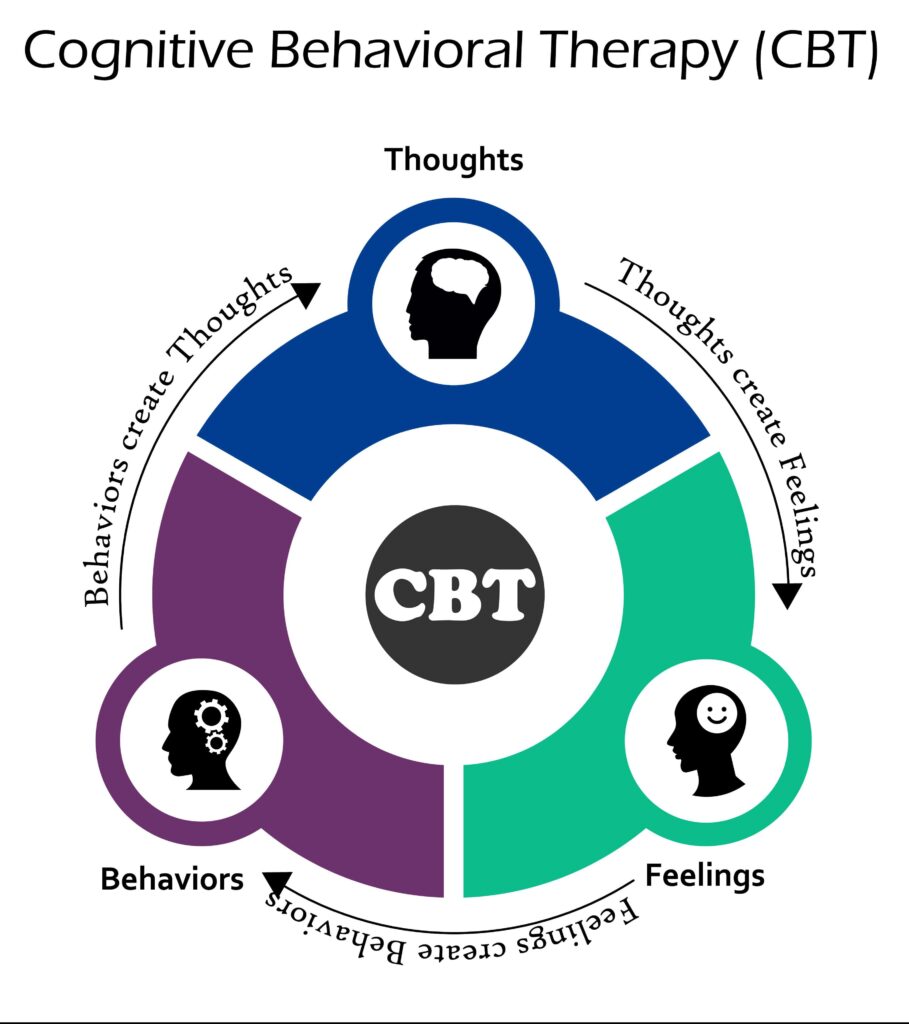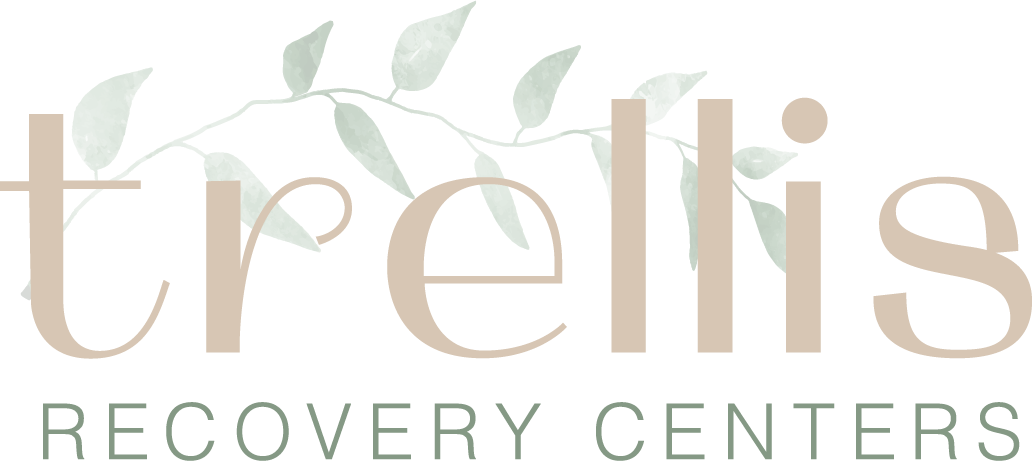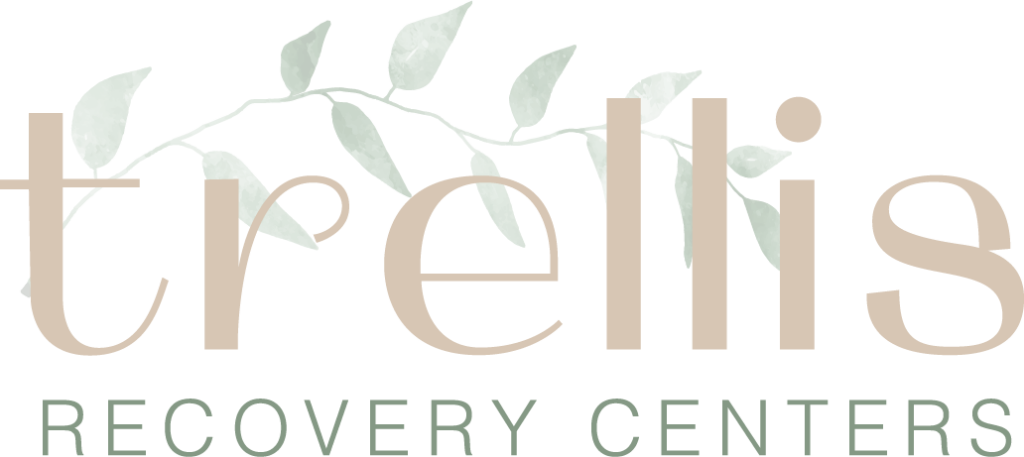Here at Trellis Recovery Center, our clinical team employs a variety of therapeutic modalities to initiate a holistic recovery process. Each approach offers a unique benefit to our clients that complements the techniques of the others. One of these core therapies used to treat eating disorders at Trellis in both group and individual settings is Cognitive Behavioral Therapy, also known as CBT.
What is Cognitive Behavioral Therapy?
Cognitive Behavioral Therapy is an evidence-based therapeutic approach to treating a number of distressing psychological symptoms, including but not limited to depression, anxiety, drug use and misuse, and eating disorders. Participating in CBT involves a structured exploration of the ways that thoughts, feelings, and behaviors are interconnected.
The core principles of CBT include the assumptions that faulty or distorted ways of thinking are at least partially responsible for psychological suffering, that these unhelpful patterns of thoughts and behaviors are learned, and that these patterns can be unlearned to relieve symptoms and help the individual live a more fulfilling life.1
CBT for eating disorders involves a variety of skill-building exercises to help recognize and reframe cognitive distortions (such as all-or-nothing thinking, personalization and blame, and overgeneralization), and typically includes homework assignments, role play activities, and other discussions to explore core beliefs and ingrained patterns of interaction.

How does CBT Apply to Treatment for Eating Disorders?
This therapeutic modality is effective at addressing many symptoms central to the experience of those with eating disorders. Given that eating disorders impact emotional, psychological, and behavioral functioning, CBT can help clients address many of the complex patterns that keep them stuck in a cycle of distress. CBT can also help clients identify and restructure deeply ingrained beliefs from eating disorders that lead to difficulties in close relationships, such as feelings of shame or avoidance of emotional intimacy. CBT offers clients a new vocabulary with which to describe their internal experiences, and can increase feelings of self-efficacy as clients expand their ability to communicate their feelings to others and to better understand themselves.
Individuals who are actively engaging in their eating disorder are often unaware of the specific internal or external triggers that lead to their behaviors due to the speed and frequency at which these behaviors occur. By using techniques from CBT, clients can develop a clearer understanding of which stressors lead to these actions and can develop a toolkit of strategies to cope in new ways. CBT also includes the practice of mindfulness meditation, which is incredibly valuable to clients with eating disorders who are learning to have a more peaceful relationship with their minds and bodies.
Request a Confidential Callback
You have reached the maximum form entries. To contact our admissions team, please call 818-696-5639

What Types of Eating Disorders Can Be Treated by CBT?
Cognitive Behavioral Therapy is applicable to the treatment of all eating disorder diagnoses. An individual struggling with behaviors associated with eating disorders can use CBT to identify the emotions that lead to using behaviors, reframe thoughts about food, body image, and relationships, and develop coping skills that can decrease avoidance of feelings and reliance on food behaviors. In addition to offering a benefit to patients who engage in the more commonly understood behaviors of restricting, purging, binging, and exercising, individuals struggling with Avoidant and Restrictive Food Intake Disorder will find similar value in CBT. For these individuals, CBT can be used to gain a deeper understanding of their specific fears and sensitivities, and can offer a roadmap for finding new ways to approach these experiences in additional therapy.
Benefits of Our Los Angeles CBT for Eating Disorders at Trellis
Here at Trellis Recovery Center, CBT is just one of several modalities of therapy utilized in treatment. Our trained clinicians will offer guidance both in the learning of these skills as well as in the application of them to promote mastery, integration, and individualization for each client. We know that our clients come to treatment with different lived experiences, motivations, and passions, and we are rooted firmly in the belief that every client is a human being worth getting to know. Our clinical team here at Trellis will honor this diversity by seeing CBT not as a one-size-fits-all approach to recovery from eating disorders, but rather as a template from which to grow toward further exploration, progress, and healing.

Begin CBT for Eating Disorders in Los Angeles, CA
If you notice that thoughts, feelings, or behaviors related to food or your body are preventing you from living life in a way that feels fulfilling and authentic, know that change is possible. Reach out to an admissions representative today. At Trellis Recovery Centers, we are cultivating lifelong freedom from eating disorders through CBT and various other therapies.
References:
[1] Unknown (2017). What is cognitive behavioral therapy? American Psychological Association. Retrieved from https://www.apa.org/ptsd-guideline/patients-and-families/cognitive-behavioral

